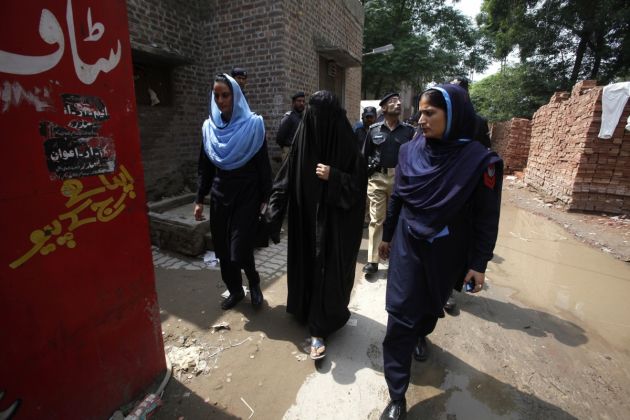Methodists in UK dismayed Pakistan blasphemy law may get more severe

Two leaders in the Methodist Church in Britain have expressed grave concern over potential changes to Pakistan's controversial blasphemy law that might make the death penalty for infringing it compulsory.
Methodist Conference president Rev. Ruth Gee and the vice-president Dr. Daleep Mukarji voiced their fears in a letter to the Pakistani High Commission in the United Kingdom and the British Foreign and Commonwealth Office.
"We are writing to express our concern about the Federal Shariah Court's order, made on 4th December 2013 in relation to the blasphemy law in Section 295 of the Penal Code," said Gee and Mukarji.
In its January 24 statement, the Methodist Church noted that on December 4, Pakistan's Federal Sharia Court made an order to make the death penalty the only lawful punishment for blasphemy, removing the possibility of imprisonment as an alternative.
Pakistan's government has until February 4 to either amend the Penal Code or appeal the order.
"Many fear that such a reform would serve to increase the persecution of Christians and other minority groups," said the Methodist statement.
In their letter the church leaders said, "The Methodist Church desires that all faiths and all faithful people are treated with honour and respect and has no wish to defend blasphemy.
"We have very valuable relationships with other faiths both within our local communities and through national organisations such as the Christian Muslim Forum in the UK and partners in Pakistan.
"We appreciate the sensitivity of this issue however it is our view that an obligatory death sentence for the offence of blasphemy is an unjust response."
The blasphemy law was radically changed in the 1980s to impose life imprisonment for defiling a copy of the Qur'an and death for insulting or criticising the prophet Muhammad.
In 1988 Bishop John Joseph of Faisalabad publicly committed suicide in protest against the laws; and although no one has yet been executed, an estimated 1,200 to 4,000 blasphemy cases have been filed.
CASES INCREASE
The number of cases (against both Muslims and Christians) has increased in recent years, resulting in long prison terms, both on remand and under sentence said the statement.
Cases are often brought to settle personal scores or target the vulnerable.
The statement cited the August 2012 case of 14-year-old Rimsha Masih who was detained in a maximum security prison for several weeks before being forced to flee the country because she had been falsely accused of burning pages of the Qur'an.
"It's hard to imagine that things could have been even worse for Rimsha and her family, but that is the reality Pakistani society is facing," said Gee.
"The only likely outcome of this reform is that the law becomes the cause of even more unjust and terrible abuses of those unable to defend themselves."
Gee and Mukarji said the many people inside and outside Pakistan realize there has been significant misuse of the blasphemy laws in recent years.
"Minorities and vulnerable people have been targeted and personal scores have been settled, quite contrary to the real intention of the law," they say in their letter.
"Naturally our concerns are not only for Christians in Pakistan. It is clear that several minorities have suffered due to prosecutions brought under the law in Section 295.
"If this order is accepted by the government, achieving justice for those accused of blasphemy will be an even more difficult task."